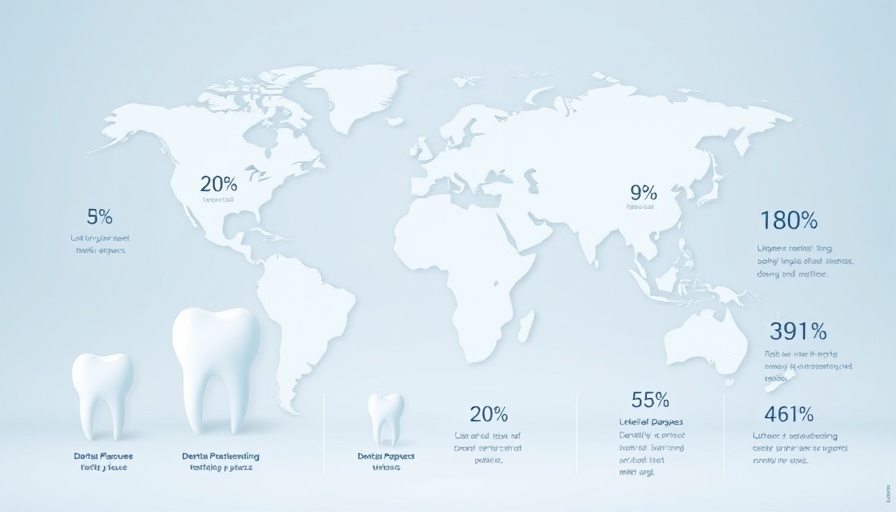
Why Flossing Matters: More Than Just A Habit
Flossing is not merely a suggestion; it's a fundamental aspect of maintaining optimal dental health. According to the American Dental Association (ADA), it’s crucial to floss at least once daily. This simple practice plays a significant role in preventing gum disease and tooth decay by reaching areas that a toothbrush simply can't. But how often should one truly floss? The short answer: every day, even for those who swear by their diligent brushing rituals.
Understanding Your Unique Dental Needs
We all have different dental health needs. For children, parental involvement can make a world of difference. Many kids lack the dexterity needed for efficient flossing, so offering a hand with child-friendly floss picks can make this task feel less daunting. On the other hand, adults may often struggle with consistency. The best strategy? Pair your flossing with an established routine to make it a natural part of your day. Those with dental appliances like braces should consider using specialized tools such as water flossers to ensure that every crevice is addressed.
The Impact of Flossing Frequency
While the ADA recommends daily flossing, individuals with existing gum issues or high cavity rates may want to augment this to twice a day. Studies indicate that increasing frequency can dramatically improve gum health and reduce plaque buildup. It’s vital to recognize that any dental routine is most effective when tailored to individual oral health circumstances. This is something we often forget in our fast-paced lives, where quick fixes seem more appealing than consistent care.
Brushing vs. Flossing: The Great Debate
It’s easy to think that brushing your teeth is sufficient; however, flossing adds a layer of protection that brushing alone cannot provide. Picture your mouth as a beautifully arranged garden—brushing might take care of the visible flowers, but flossing is what keeps the weeds at bay, lurking in those hard-to-reach areas. Regular brushing combined with daily flossing creates a comprehensive defense against decay and periodontal disease.
Choosing the Right Floss
Not all floss is created equal. Different types of dental floss exist, from waxed to unwaxed, flavored to unflavored, and even specialized options for those with braces or sensitive gums. Selecting the right type of floss can make your experience more enjoyable and effective. It's important to match your dental hygiene tools to your specific needs, making the task less of a chore and more of a self-care ritual. Don’t hesitate to experiment to find what works best for you!
Creating Healthy Dental Routines for Kids
Getting children excited about dental hygiene can be a challenge. However, by introducing fun tools and cadences, flossing can become a game instead of a chore. Transforming oral care into an enjoyable activity can ensure they develop a lifelong habit early on. Resources aimed at pediatric dentistry often provide insight into engaging ways to introduce flossing. Developing good habits early sets them up for success later in life.
What Happens If You Don’t Floss?
Ignoring flossing may seem innocent enough, but neglect can lead to long-term repercussions. Without consistent flossing, plaque can build up between teeth. This may lead to gum inflammation, cavities, and potentially chronic diseases affecting not just dental health but your overall well-being. You wouldn’t skip the gym for a week and expect the same results, right? Hypothetically, skipping flossing doesn’t lead to instant abs—just a slew of dental problems!
Conclusion: Take Charge of Your Dental Health Today!
With so much at stake in terms of your overall well-being, committing to a daily flossing routine is a small yet impactful change worth making. After all, when you think about it, a healthy smile speaks volumes about not just your oral hygiene but your self-care practices in general. Why not take a proactive approach and ensure your grin remains bright and strong? Start practicing daily flossing today for a healthier tomorrow!
 Add Row
Add Row  Add
Add 




Write A Comment